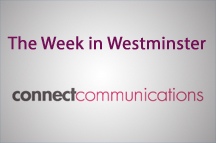 If anyone thought we were in for a slow start to 2015, they were wrong. The ‘long campaign’ is less than three weeks old but already we’re beginning to see (and feel) what the next four months are going to look like.
If anyone thought we were in for a slow start to 2015, they were wrong. The ‘long campaign’ is less than three weeks old but already we’re beginning to see (and feel) what the next four months are going to look like.
Monday kicked off with the fight in two corners: Ed Miliband launching Labour’s election campaign, and the Conservative’s attempt to discredit them with a comprehensive dossier or dissection of Labour’s spending plans.
Despite much of the polling continuing to suggest that Ed is the cause of many of Labour’s woes, the Party still chose to use Ed, and Ed alone, to talk about the “millions of conversations” Labour is going to have across the country to convince voters that they should be the Party of government. Coupled with Shadow Health Secretary Andy Burnham taking to the airwaves to claim that a further five years of Tory government will leave the NHS “unrecognisable”, the launch may have appealed to those already won over but offered little for the unconvinced.
 The Tories went with a team approach to launch their 82-page cost analysis of Labour’s spending plans, using the combination of Osborne, May, Hague, Morgan, and Javid to try to force Labour to admit the spending squeeze will continue if they seize control. Unsurprisingly Labour attacked the report (Ed Balls even ripped it up), while Ed Miliband promptly told the BBC the Tories accusations were “completely false”.
The Tories went with a team approach to launch their 82-page cost analysis of Labour’s spending plans, using the combination of Osborne, May, Hague, Morgan, and Javid to try to force Labour to admit the spending squeeze will continue if they seize control. Unsurprisingly Labour attacked the report (Ed Balls even ripped it up), while Ed Miliband promptly told the BBC the Tories accusations were “completely false”.
Spare a thought for Nick Clegg who also gave a speech on Monday in which he argued that the Lib Dems will “provide heart to the Conservatives and spine to Labour” in a future coalition – a statement that will do nothing to win him friends amongst his potential bedfellows. More significantly, the Lib Dems announced this week their team of spokespeople for the General Election. There were few surprises but already the decision to give Danny Alexander the role as lead economic spokesperson over Vince Cable appears to be causing tension, with Cable and Alexander reportedly not on speaking terms.
However, despite all three parties formally launching their campaigns this week, the most significant developments of the week came from elsewhere.
The emergence of the long-expected ‘A&E crisis’, dominating the front pages at the start of the week, is just the New Year’s gift Labour will have hoped for (though Miliband’s reported comment to the BBC’s Nick Robinson that the party are seeking to ‘weaponise’ the NHS as an election issue has been yet another own-goal). While the NHS’ recent difficulties will be causing some sleepless nights for the Tories they also have some cause for optimism as the continuing fall in oil prices begins to be reflected in petrol prices, potentially denting Labour’s ‘cost of living’ narrative over the coming months. Finally, Ofcom’s decision to advise against giving the Green’s ‘major party’ status may well prove the final nail in the coffin of the election TV debates being repeated as Cameron jumped on the opportunity to say he would not take part in any debate without the Greens.
All in all, a busy start to the new year and a reminder, if any were needed, that the next four months are going to be a very ‘long campaign’ indeed.












